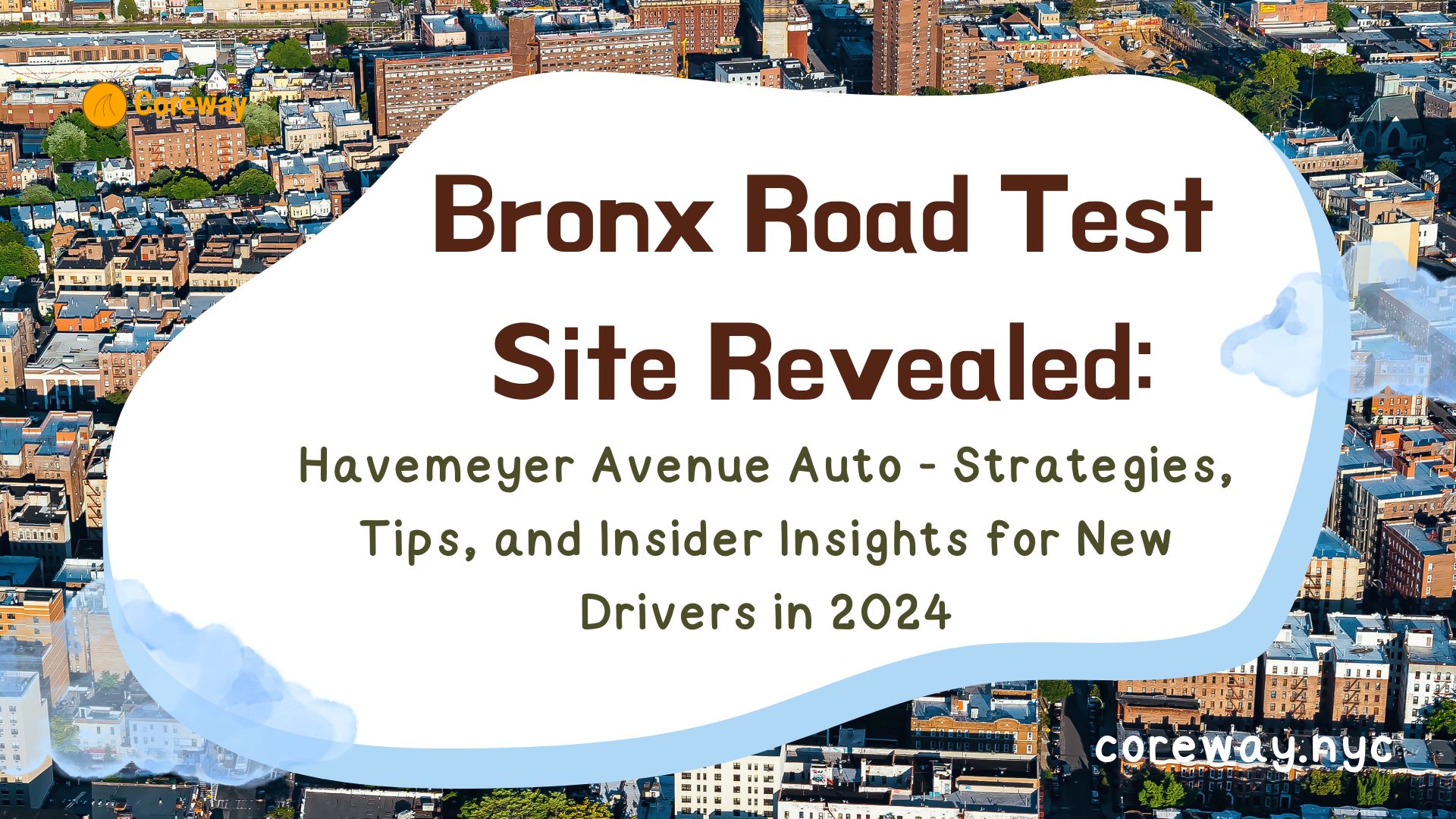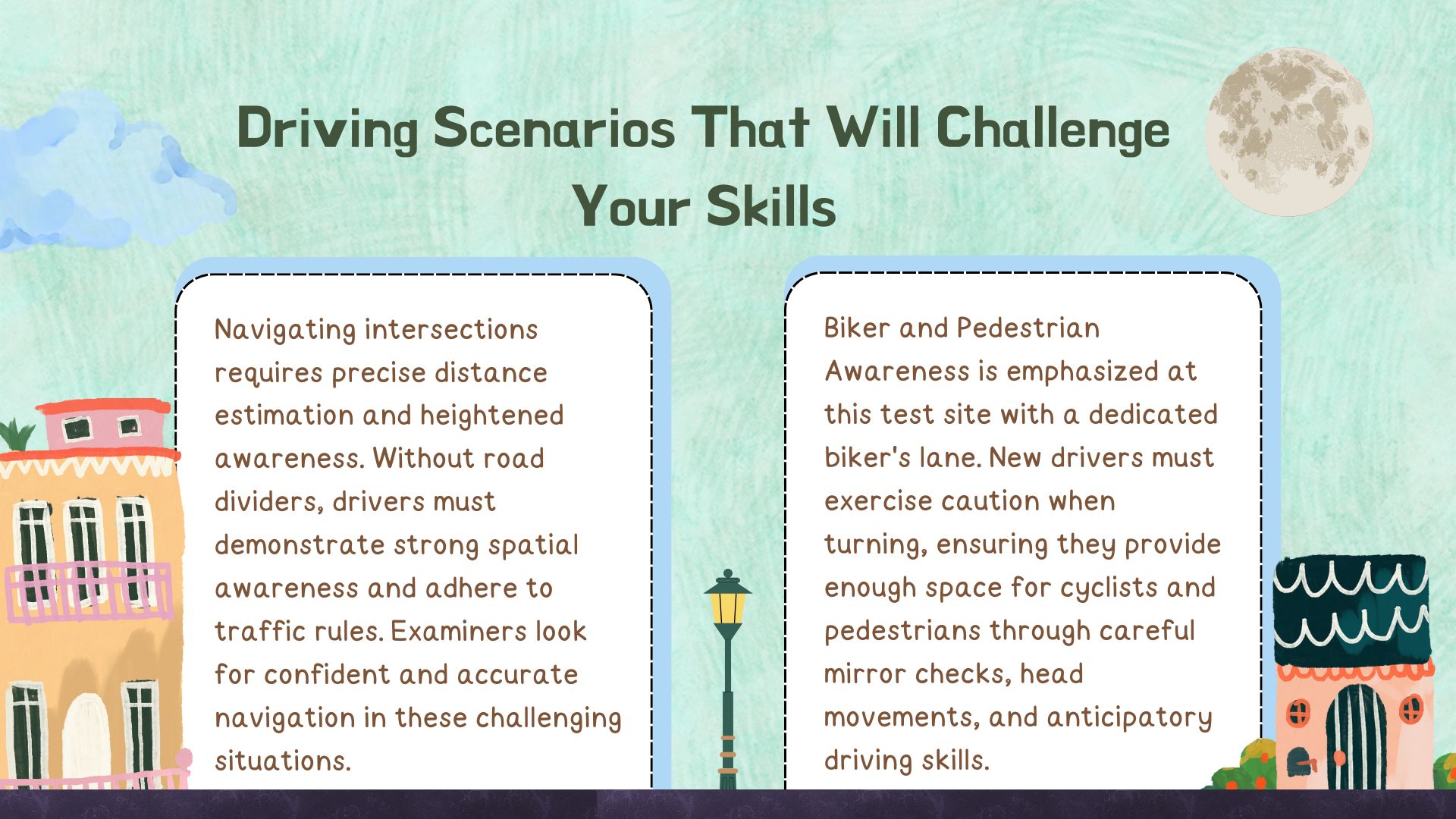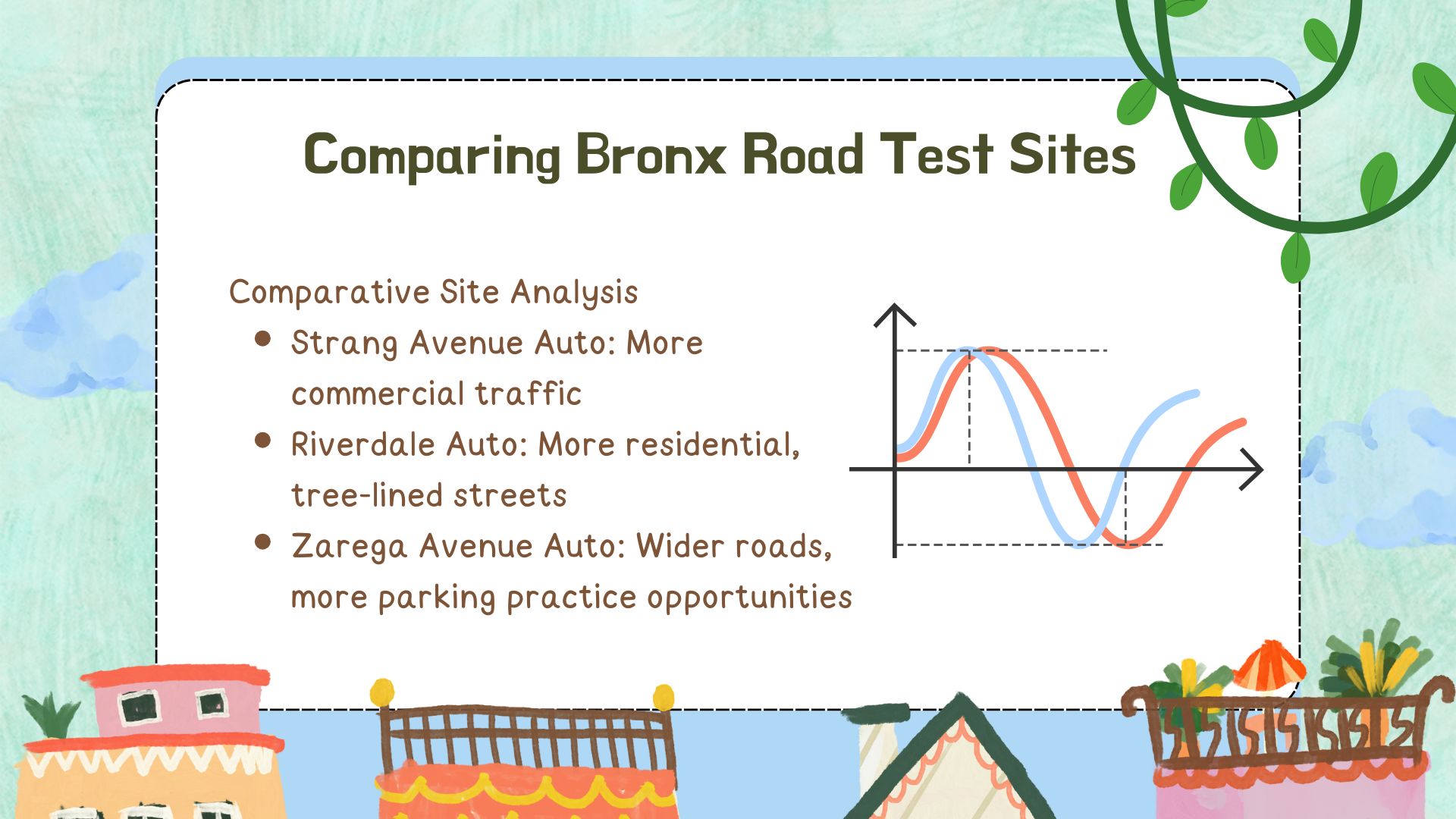Bronx Road Test Site Revealed: Havemeyer Avenue Auto - Strategies, Tips, and Insider Insights for New Drivers in 2026

Table of Contents
Obtaining a driver's license in the Bronx can feel like navigating a complex urban maze. Among the various road test sites, Havemeyer Avenue Auto stands out as a beacon of hope for nervous new drivers. As someone who has guided countless students through the intricacies of New York City driving, I can confidently say that understanding the nuances of this specific test site can dramatically improve your chances of success.
Call Us Today 6AM-10PM
Or fill out the form 24/7
Our team is here to guide you with promotions, instructor availability, and the best training package for you.
Havemeyer Avenue Auto: A Closer Look at the Test Site
Nestled in a strategic location between Randall and Cincinnatus Avenues, Havemeyer Avenue Auto offers a unique driving environment that truly tests a new driver's skills. The road test site is characterized by its distinctive two-way road without dividers, presenting a realistic urban driving scenario that goes beyond simple maneuvers.
Find affordable options to rent car for road test in Brooklyn, NYC from our approved partners.
Key Site Characteristics
- Narrow road conditions
- Integrated biker's lane
- Less congested traffic area
- Clear traffic signage
- Multiple intersection types
Driving Scenarios That Will Challenge Your Skills

What makes Havemeyer Avenue Auto particularly challenging is its comprehensive driving environment. The site is designed to simulate real-world driving conditions that go far beyond basic parking and turning. Drivers will encounter:
Call Us Today 6AM-10PM
Or fill out the form 24/7
Our team is here to guide you with promotions, instructor availability, and the best training package for you.
Intersection Navigation
The intersections here require precise distance estimation and keen awareness. With no road dividers, you'll need to demonstrate exceptional spatial awareness and adherence to traffic rules. Examiners are looking for drivers who can smoothly navigate these potentially tricky areas with confidence and precision.
Biker and Pedestrian Awareness
A standout feature of this test site is the dedicated biker's lane. New drivers must show extraordinary caution when making turns, ensuring they give adequate space to cyclists and pedestrians. This requires a combination of mirror checking, head movement, and anticipatory driving skills.
Preparation: Your Key to Test Day Success
Vehicle Readiness Checklist
Before arriving at Havemeyer Avenue Auto, ensure your vehicle meets all DMV requirements:
| Document/Item | Required | Notes |
| Vehicle Registration | ✓ | Must be current |
| Proof of Insurance | ✓ | Valid and unexpired |
| 4-Door Vehicle | ✓ | In good working condition |
| Working Lights | ✓ | Headlights and signal lights |
Mental Preparation Strategies
Success on your road test is as much about mental preparation as it is about driving skills. I always advise my students to:
- Arrive at least 30 minutes early
- Practice deep breathing techniques
- Visualize a successful test
- Communicate clearly with the examiner if you need clarification
Common Challenges and Pro Tips
Experienced driving instructors know that certain mistakes can instantly derail a road test. At Havemeyer Avenue Auto, pay special attention to:
- Smooth mirror checking (move your head to show active observation)
- Maintaining consistent, legal speed
- Proper signaling before turns
- Maintaining a calm demeanor
Documentation: What You Absolutely Must Bring
Nothing is more heartbreaking than being turned away due to missing documentation. Ensure you have:
- Valid NY state learner's permit
- 5-hour pre-licensing course completion certificate
- Corrective lenses (if required on your permit)
- MV-262 form (for drivers under 18)
Comparing Bronx Road Test Sites

While Havemeyer Avenue Auto is exceptional, it's worth understanding how it compares to other Bronx sites:
Comparative Site Analysis
- Strang Avenue Auto: More commercial traffic
- Riverdale Auto: More residential, tree-lined streets
- Zarega Avenue Auto: Wider roads, more parking practice opportunities
Final Words of Encouragement
Remember, a road test is more than just a driving assessment—it's your gateway to independence. The examiners at Havemeyer Avenue Auto are not looking to trick you but to ensure you can safely navigate New York City's complex driving landscape.
Enroll in our specialized road test preparation classes in Brooklyn for guaranteed results.
Pro Instructor Insight
Stay calm, trust your training, and remember that confidence is your greatest asset. Every experienced driver started exactly where you are now.

Call Us Today 6AM-10PM
Or fill out the form 24/7
Our team is here to guide you with promotions, instructor availability, and the best training package for you.
Frequently Asked Questions (FAQ)
-
How early should I arrive at the Havemeyer Avenue road test site?
Arriving 30 to 45 minutes before your scheduled test time is crucial. This buffer allows you to find parking, gather your documents, and calm your nerves. Rushing into a road test can increase anxiety and potentially impact your performance. By arriving early, you'll have time to do a final vehicle check, review your preparation notes, and mentally prepare for the examination.
-
What documents do I absolutely need to bring to the road test?
Your documentation is your ticket to taking the test. You'll need your valid New York state learner's permit, which must not be expired. Bring your 5-hour pre-licensing course completion certificate, and if you wear corrective lenses, have them with you if noted on your permit. For drivers under 18, the MV-262 form signed by a parent or guardian is mandatory. Double-check all documents the night before to avoid any last-minute panic.
-
What if I make a mistake during the road test?
Mistakes happen, and they don't automatically mean failure. DMV examiners understand that new drivers are human. The key is to stay calm and continue driving safely. Minor errors won't necessarily disqualify you, but how you handle those errors matters. If you make a mistake, acknowledge it mentally, refocus, and demonstrate your overall driving competence. Confidence and ability to recover are often more important than perfect execution.
-
Can I use my own car for the road test?
Your vehicle must meet specific DMV requirements. It needs to be a four-door car in good condition, with working headlights, signal lights, and proper registration and insurance. If your personal vehicle doesn't meet these standards, consider borrowing a suitable car or using a driving school vehicle. The car's condition is just as important as your driving skills.
-
How long does the actual road test take?
The Havemeyer Avenue road test typically lasts around 15 to 20 minutes, though it can feel much longer when you're in the moment. The examiner will assess your ability to navigate various driving scenarios, including turns, intersections, and basic traffic maneuvers. Remember, it's not about perfection but about demonstrating safe, competent driving skills.
-
What if I'm not feeling ready on the day of the test?
It's better to reschedule than to risk failing due to lack of preparation. Most driving schools and instructors can help you assess your readiness. If you feel overwhelmed or unprepared, there's no shame in postponing your test. Use the additional time to practice, build confidence, and refine your skills.
-
Do I need a driving instructor to take the road test?
While not mandatory, working with a driving instructor can significantly improve your chances of success. They can provide targeted feedback, help you understand the specific challenges of the Havemeyer Avenue test site, and boost your confidence. Many driving schools offer last-minute preparation sessions specifically designed to prepare you for the road test.
-
What are the most common reasons people fail the road test?
Failure often stems from a combination of nervous mistakes and fundamental driving errors. Common issues include improper mirror checking, failing to signal correctly, not maintaining proper speed, poor intersection navigation, and lack of situational awareness. Overthinking or becoming flustered can lead to mistakes that might have been avoided with calm, focused driving.
-
How many times can I retake the road test if I fail?
There's no strict limit on road test attempts in New York. However, each test requires a new appointment and fee. If you fail, take time to understand why, work on those specific skills with an instructor, and approach your next test with improved knowledge and confidence.
-
Are there any special considerations for drivers under 18?
Young drivers have additional requirements, including the MV-262 form signed by a parent or guardian. There are also restrictions on driving hours and passenger limits for new drivers under 18. These rules are designed to help young drivers build experience safely and responsibly.
 English
English Spanish
Spanish 

